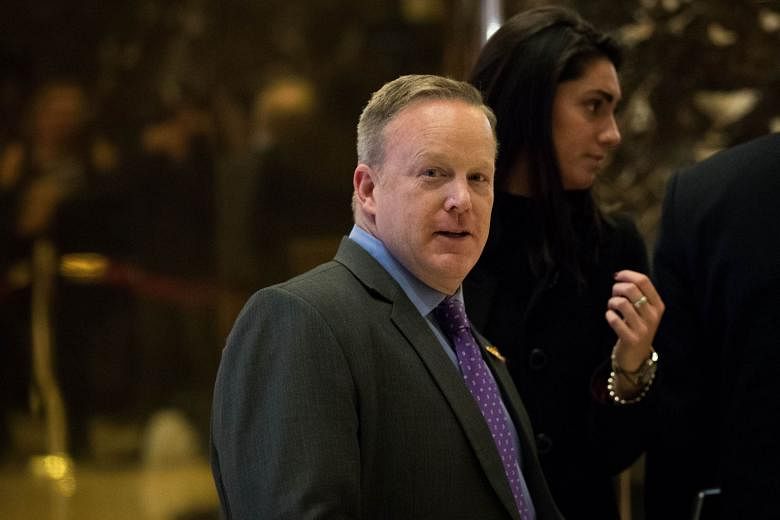WASHINGTON • With the naming of Mr Sean Spicer as White House press secretary, Mr Donald Trump has selected a Republican Party insider and communications veteran.
But that does not mean it will be business as usual for the press corps that covers the next administration.
Mr Trump's unconventional relationship with the media and his penchant for communicating through unfiltered Twitter posts threaten to upend a decades-old Washington tradition that relies almost entirely on protocol. The result, reporters and editors say, could be a loss of transparency that would hinder the press' role as a conduit for information to the people.
Mr Spicer, in an interview with Fox News, said the new regime wanted to be "innovative, entrepreneurial" about its operations. While he believed there would be daily briefings, he suggested the format could change, perhaps by adding new elements, eliminating some television coverage and bringing "more people into the process".
All this has stirred concern among journalists who say small changes to the system could lead to the diminishing of other traditions.
"There is value in having a formal setting where the administration's position is stated and can be referred to and can be archived," said Mr Scott Wilson, the national editor for The Washington Post, who was a White House correspondent during the Obama presidency.
Since his election, Mr Trump has shown few reservations about ignoring the norms of presidential media coverage. He has defied convention by refusing to allow journalists to travel with him on his plane - including on his flight to the White House for his first meeting with President Barack Obama.
The protocols that underpin the relationship between the news media and the president might seem arcane, but press advocates say these traditions, even in the age of Twitter, ensure fundamental tenets of democracy: historical record and access to information.
"The American people deserve to have someone stand up and be accountable for the work of the president and the White House every day," said Mr Mike McCurry, who was press secretary for former president Bill Clinton in the mid-1990s. "I think any White House needs to explain its position and reasoning in more than 140 characters."
Many journalists also said the new administration should retain the protective pool - a group of journalists that travels with the president whenever he goes outside the White House, and through which he can communicate with the public during a crisis.
"We're not asking to be at his dinner table with him," said Mr Jeff Mason, president of the White House Correspondents' Association, which coordinates the pool. "We just want to be nearby in case something happens."
NYTIMES

